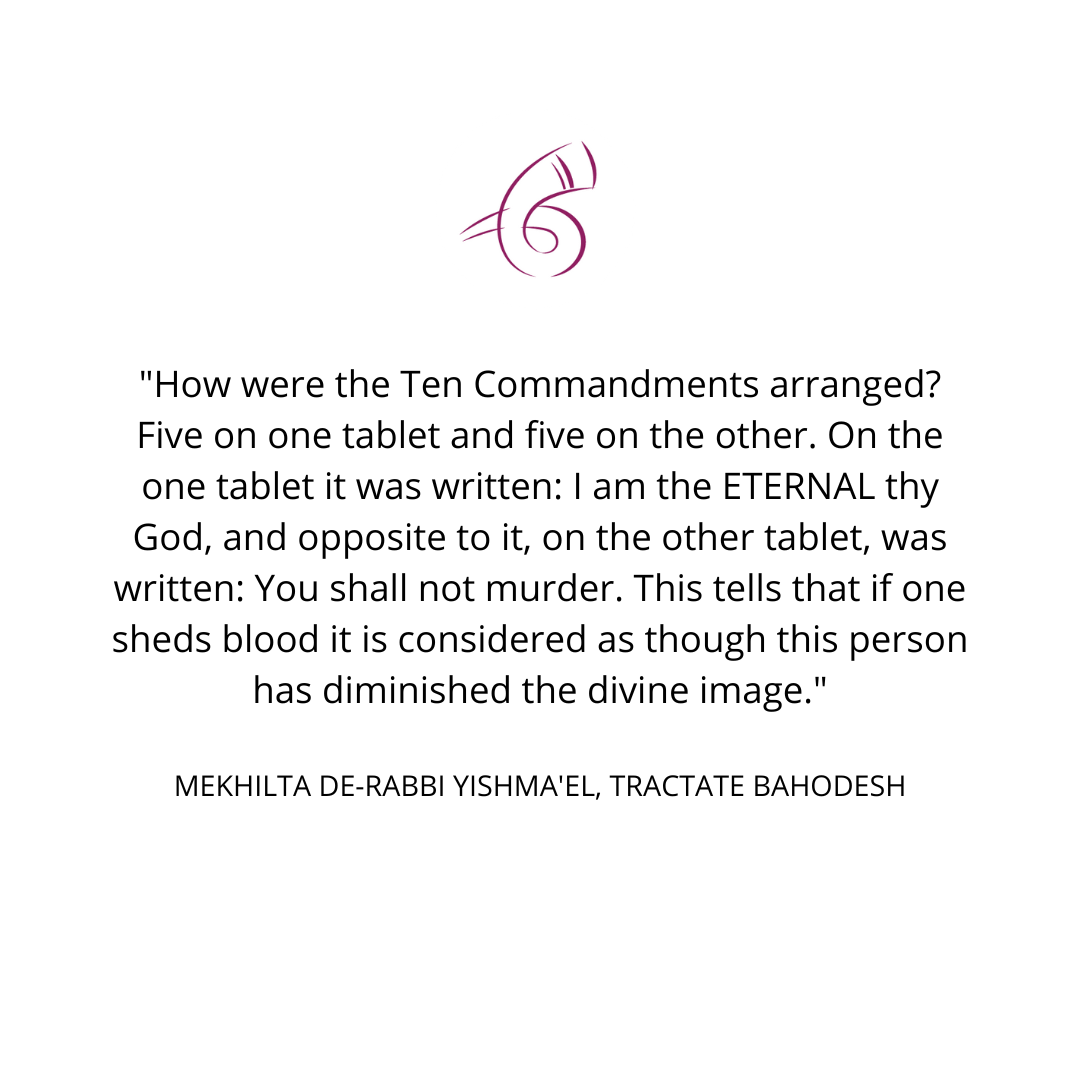“How were the Ten Commandments arranged? Five on one tablet and five on the other. On the one tablet it was written: I am the ETERNAL thy God, and opposite to it, on the other tablet, was written: You shall not murder. This tells that if one sheds blood it is considered as though this person has diminished the divine image.”
-Mekhilta de-Rabbi Yishma’el, Tractate Bahodesh
Dear T’ruah community,
This week, we read the very beginning of the Torah — with its insistence that every single person is created in the image of God — amid grief and pain and fear and anger.
Some of us are mourning friends and family members killed in Hamas’s brutal attack last weekend or in the battles that followed, or are worried about friends and family members who have been kidnapped.
Many of us are just one or two degrees of separation from those who have been murdered or taken hostage. Our hearts are being broken again and again as we hear stories of unimaginable cruelty and suffering, and as we talk to members of our own community who have lost loved ones.
And we are also deeply hurt by the refusal by some to state what should not need to be said: that murdering civilians is a war crime, and that taking hostages is a war crime, and that there is no justification for such acts of terror.
We, as a Jewish community, are in deep pain.
In the depths of our pain, we also have compassion for the suffering of Palestinian civilians, who have been killed, injured, and displaced, in the Israeli military response to Hamas’s massacre, and in settler revenge attacks in the West Bank. Israel has instructed 1.1 million Gazans in the northern Gaza Strip to leave their homes in the next 24 hours.
This large-scale evacuation is impossible; there is simply nowhere safe to go.
Humanitarian groups are warning of imminent catastrophe, and we have joined other human rights groups, including our Israeli partners, in calling for international intervention. As Michael Sfard, a prominent Israeli human rights lawyer wrote this week, “Hamas committed an abominable war crime for which there can be no forgiveness… And yet, the laws of war weren’t designed only for situations in which our blood is cool, in which there is no justified anger or understandable desire for revenge.”
We also take inspiration from the extraordinary response of Israeli civil society, including both Jews and Palestinian citizens, religious and secular people, and people of multiple political allegiances, who directly saved lives last weekend, and who have organized housing and supplies for those displaced, an operation to locate captives, and joint Jewish-Arab civilian patrols to ensure that there are no clashes in mixed cities.
This week, when we have had no words, we have turned to our tradition. We have read the words of the psalms to cry out to God. We have prayed for the safe release of the hostages. We have recited the mourners kaddish.
And we have turned to each other.
Hundreds of members of our broader community joined us in the online spaces we provided this week for mourning and prayer.
We have brought together our rabbi and cantor members, who are charged with the heavy and vital task of leading their communities in this painful time, and we have given them opportunities for reflection as well as text and prayer resources for responding to the moment.
Throughout this week, we have continued to speak in a clear moral voice grounded in Torah and human rights, and a love of the Jewish people.
We know that for so many in Israel and Gaza, this Shabbat will not be one of shalom. We pray for the time when we will be able to say to one another again, with a whole heart, Shabbat Shalom.
Rabbi Jill Jacobs (she/her)
CEO, T’ruah


